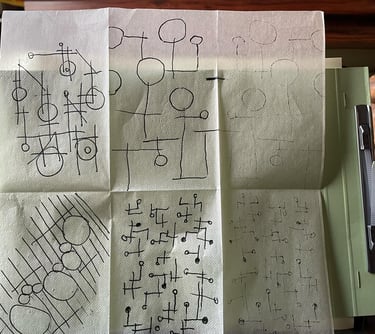teaching philosophy
Many of my students in the last several years regard reading and writing in school as an outdated, onerous slog through complicated texts and performances that can be suavely managed with AI.
In my classroom, analytical and interpretive writing, journaling, note-taking and rhetorical problem-solving are the means of self-cultivation (i.e., building the capacity for insight, empathy and delight)—a goal that cannot be outsourced to AI.
Moreover, to become flexible code switchers between reading print and digital media, I make my classroom a place where students get a chance to experience the former. I want them to experience the contrast—and that by engaging a print text, there is something great for their brain, for their spirit, and for the budding writer in them.
in 40 words...


Teaching Philosophy
Getting better at reading and writing requires that students adopt and practice using new tools---but how those tools are introduced and integrated with previous habits and their abiding interests: therein lies the art of teaching. I have strategies, developed over two decades, but I am still learning how to make the bridges between where they're at and what I want them to experience as learners.


How To Get Student Writers Invested
MULTIPLE APPROACHES


Handwriting
HOW WRITING BY Hand MAKES IT REAL


Theory
Writing Classes Have a CONTENT
GenAI (Chatgpt, etc.)
Elephant in the Room

